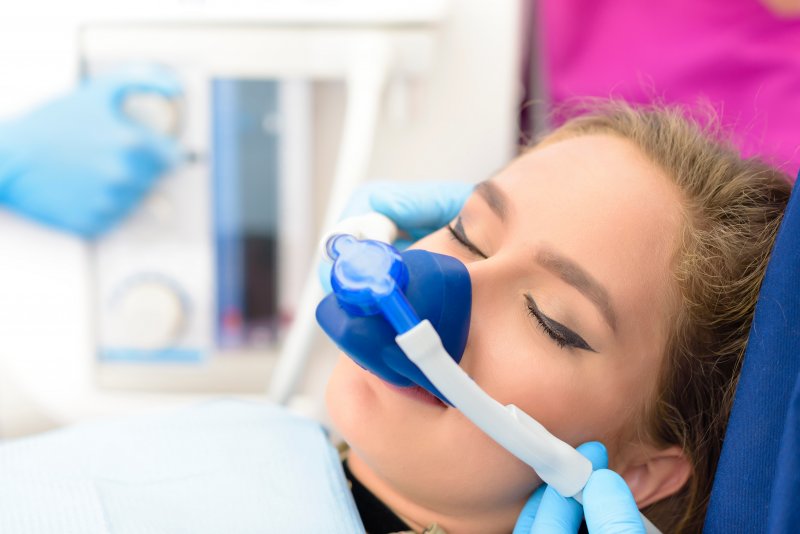
Many people are anxious about seeing their oral healthcare providers, and this can make it difficult for them to receive treatments necessary to keep their teeth in good shape and prevent painful infections. Thankfully, sedation dentistry can induce a sense of wellbeing and diminish a patient’s ability to feel discomfort. It’s perfectly reasonable to be curious about these treatments, so here are a few frequently asked questions about dental sedation as well as their answers.
What Is Sedation Dentistry?
Sedation dentistry includes several treatments designed to reduce anxiety, induce a sense of calmness, and lower sensitivity to discomfort. While people may most frequently associate these treatments with dental fillings, they can also be used to make it easier for patients to receive tooth extractions, dental implants, periodontal therapy, cosmetic procedures, routine checkups, and practically any other oral health service.
Is Sedation Dentistry Safe?
Dental sedation is perfectly safe as long as it is administered by a qualified oral health provider. The first step to receiving one of these treatments is to have a consultation with your dentist so they can evaluate your oral health and medical history to make sure you can receive sedation effectively and without complications. If you do not qualify for one treatment, your dentist may be able to suggest an alternative that would be a better option.
Who Can Sedation Dentistry Help?
Sedation dentistry is a great way to make oral healthcare more accessible for patients who deal with issues like:
- Severe anxiety or phobias about seeing their dentists
- Uncomfortably sensitive teeth or gums
- Strong gag reflexes
- Difficulty sitting still
- An especially long dental treatment that must be completed in one session
Can I Drive Home After Dental Sedation?
The effects of nitrous oxide, also called laughing gas, will fade away within minutes after the sedation treatment ends and leave no lingering side effects, so patients receiving it can expect to be able to drive themselves home or to work or school afterward. However, treatments like oral conscious sedation and IV sedation will last for at least several hours after the treatment, so patients receiving these will need a trusted individual to drive them home and monitor them afterward.
Dental sedation may be the best way to make oral healthcare simpler and more pleasant. Consulting with your dentist can help you find out if you can be a suitable candidate for these treatments.
About the Author
Dr. Zachary Brice earned his dental degree at the University of Texas Health Science Center San Antonio Dental School and regularly participates in continuing education coursework to further his skills. He takes great pride in helping the community of San Antonio maintain beautiful and healthy smiles. Areas of expertise include general dentistry, dental implants, and sedation treatments. To learn more about sedation dentistry, contact his office online or dial (210) 903-5565.
